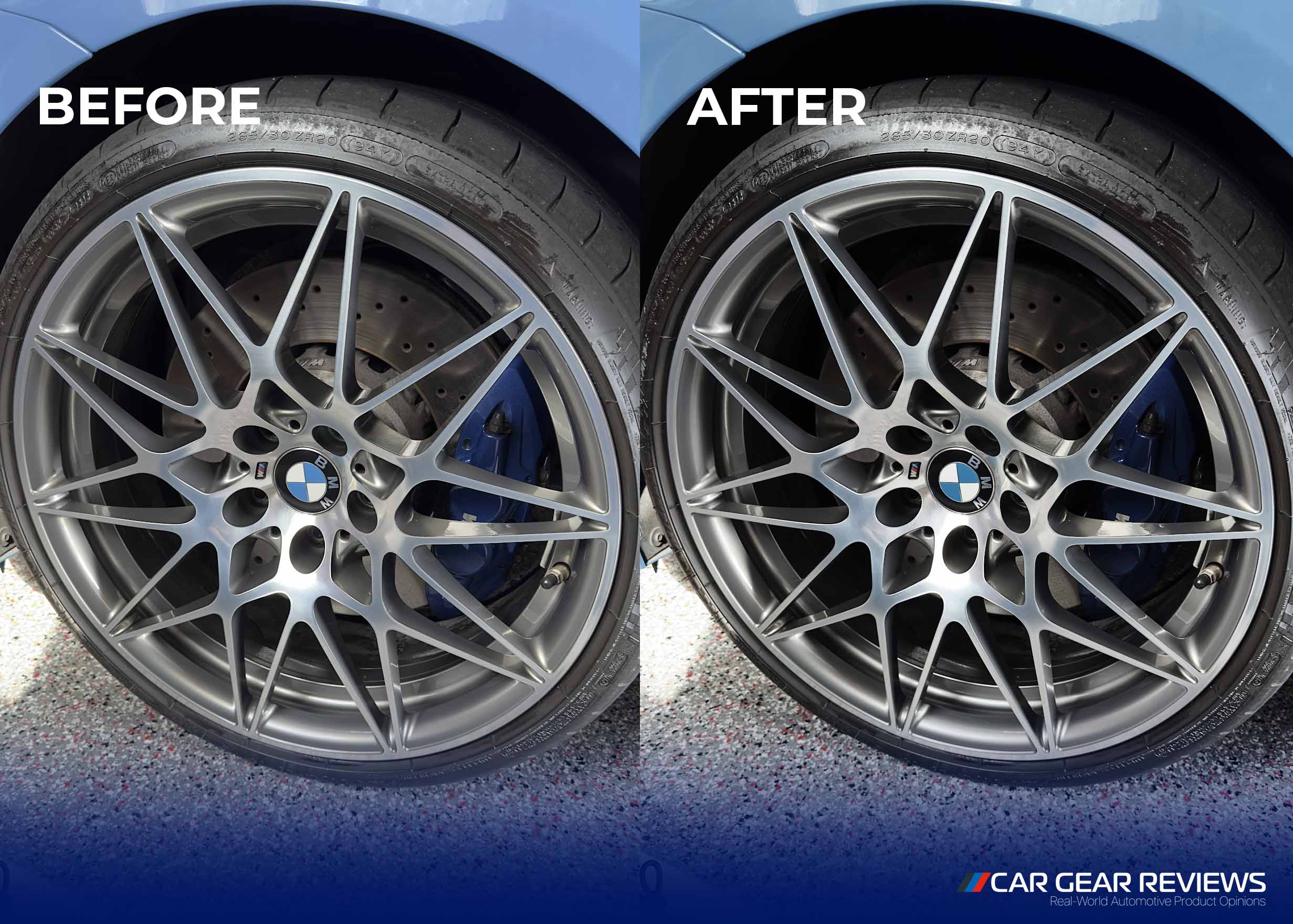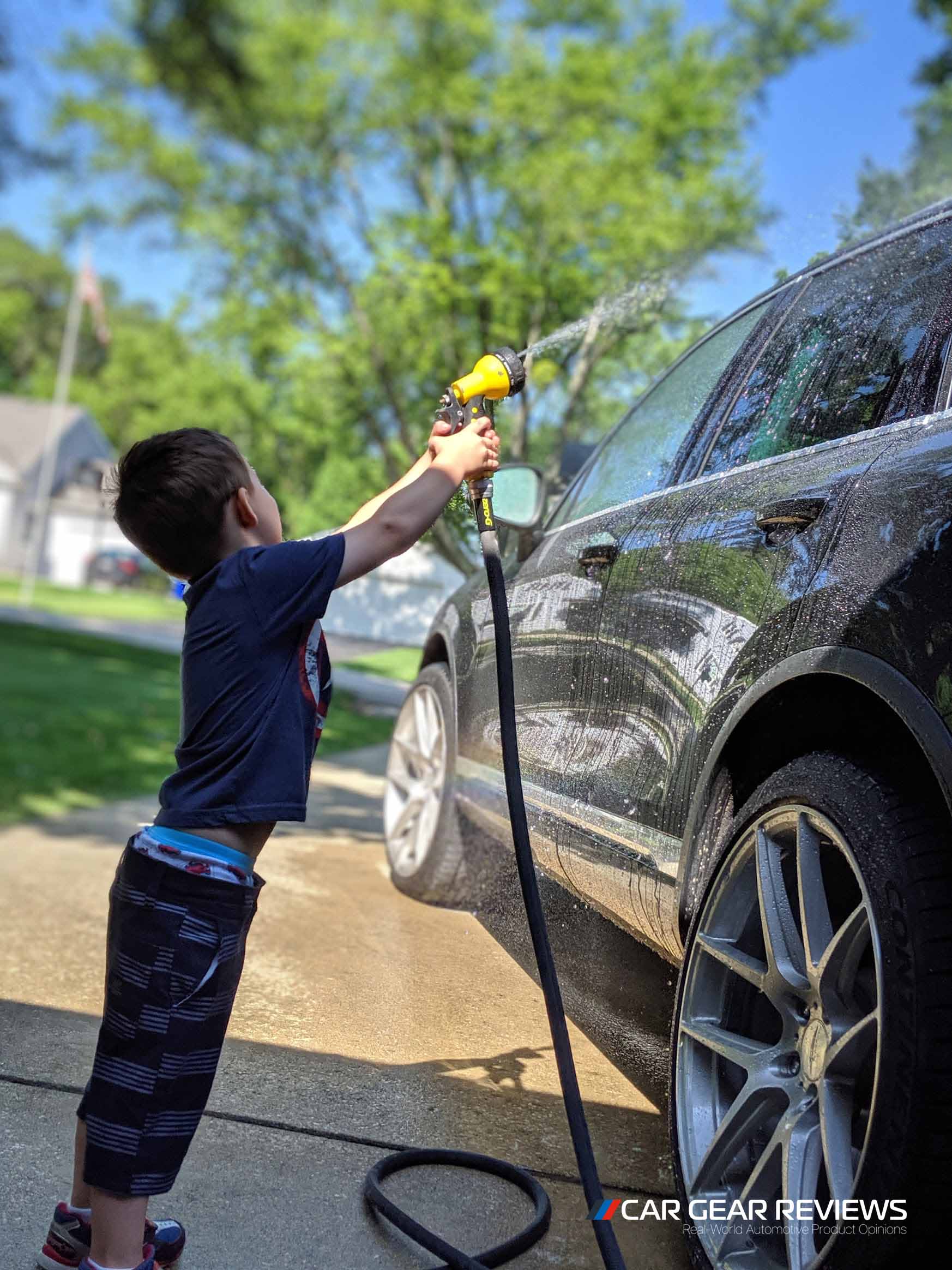Anyone that knows me, understands I personally dislike using specialty “wheel cleaners.” You know, the kind that foam on, have a pink to white color indicator, etc. I have used many different types, and all have either never worked right, or I felt it stripped my wheels of the shine and brilliance they once had.
Spray-on wheel cleaners can potentially damage your wheels if not used properly or if they contain harsh chemicals. Here are some reasons why these cleaners might cause harm and why I advocate to NOT use them:
TL:DR – On my wheels on my BMW M3 and VW Touareg, I use Chemical Guys Hydrosuds Car Wash Soap when I do a full wash. For light detailing and maintenance, I stick to my ChemicalGuys Hydrocharge and Hydrospeed cleaning methods!
Risks Associated With Using Spray-On Wheel Cleaners
- Incompatible cleaner: Some wheel cleaners are formulated for specific types of wheel finishes or materials. Using a cleaner that’s not compatible with your wheels can cause staining, discoloration, or even corrosion. Always check the product’s compatibility with your wheel finish before use.
- Acidic or caustic chemicals: Some wheel cleaners contain strong acidic or alkaline ingredients that can damage certain wheel finishes, especially if used improperly or left on the wheel for too long. Examples include cleaners with high concentrations of hydrofluoric acid, ammonium bifluoride, or highly alkaline substances. These nasty ingredients can cause pitting, etching, or staining on some wheel surfaces, particularly on aluminum, chrome, or anodized wheels. Etching actually happened to me once on an old mustang of mine. Completely my fault, but I learned the hard way.
- Prolonged contact: Allowing the wheel cleaner to remain on the wheel for too long can increase the risk of damage, especially if the cleaner is not specifically designed for the wheel’s finish. Follow the manufacturer’s instructions for the recommended dwell time and rinse the cleaner off thoroughly.
- Improper dilution: Some wheel cleaners are concentrated and require dilution before use. Failing to dilute the product as directed can result in a too-strong solution that might harm the wheel’s finish. READ THE DIRECTIONS!
- Abrasive particles: While not common, some wheel cleaners may contain abrasive particles that can scratch the wheel’s surface, especially on painted or clear-coated wheels. Always choose a non-abrasive cleaner and use a soft brush or cloth to avoid scratches.
- High-pressure washing: If you use a high-pressure washer to rinse off the wheel cleaner, be cautious not to hold the nozzle too close to the wheel or use excessive pressure. This can cause damage to the wheel’s finish, especially on painted or clear-coated wheels.

The Alternative I Recommend
After all I have said above, I personally feel it’s best to just spend the time Ceramic Coating your wheels, and maintaining them with detail spray and ceramic detail spray. When washing your car, just use car wash soap and a gentle wash mitt to get everything off your wheels.
This will do just as much if not more for your wheels than if you spent the extra time using specialty wheel cleaners on your rims. It’s just too much risk, and wasted time.
Conclusion
Some of you may be all about using these wheel cleaners. I can not endorse using them. But if you must, to prevent damage from spray-on wheel cleaners, always choose a product that is compatible with your wheel finish, follow the instructions for application precisely, and rinse the cleaner off thoroughly.
Additionally, as if I need to really say it; test the product on a small, inconspicuous area of the wheel before applying it to the entire surface to ensure it does not cause any unwanted effects or damage.

Buy Chemical Guys Car Wash Products Online
I have purchased my products on Amazon direct from these sources, so you can feel comfortable ordering online from here as well.


